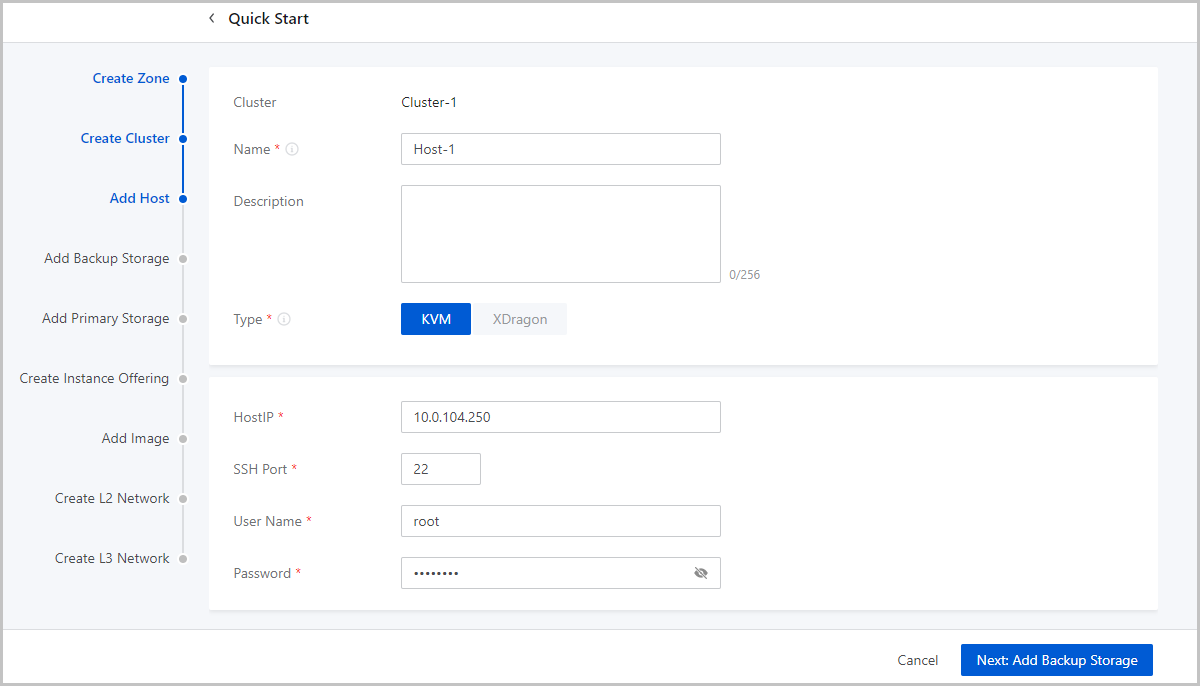Add a Host
A host provides compute, network, and storage resources for VM instances.

- Name: Enter a name for the host.
- Description: Optional. Enter a description for the host.
- Type: Select a hypervisor type for the server. Valid values: KVM and XDragon.
- Host IP: Enter an IP address for the host, for
example, 172.20.14.32.
- In the production environment, for stability and security concerns,
we recommend that you separate the management network from the
public network so that the management nodes and compute nodes reside
in independent networks and have independent IP addresses.
For example, if you use eth0 to connect a management network, ZStack Cloud uses the management network to communicate with compute nodes. If you use eth1 to connect to a public network, you can use the top aggregation switch to interconnect with the Internet.
- The separation of the management network and public network can maximize system security and ensure sufficient bandwidth for the management network.
- In the production environment, for stability and security concerns,
we recommend that you separate the management network from the
public network so that the management nodes and compute nodes reside
in independent networks and have independent IP addresses.
- SSH Port: Enter an SSH port for the host. Default: 22. If you do not specify an SSH port for the host, the system uses port 22 as the SSH port.
- User Name: Enter a username that has the sudo
permission for the host.
- If you specify a normal user, the user must have the sudo permission.
- We recommend that you use the adduser command to
create a normal user.The following script shows how to create a normal user and grant the user the sudo permission.
#Create a normal user named test [root@localhost ~]# adduser test #Grant the user the sudo permission [root@localhost ~]# echo "test ALL=(ALL) NOPASSWD: ALL" >>/etc/sudoers
- Password: Enter a password for the user. Note the password is case sensitive.
- The configuration process may last several minutes.
- Error messages are prompted if errors occur.
After you complete the wizard, if you want to add more hosts to the same cluster as you set in the wizard, you must configure the same CentOS system, SSH port, username, and password for the hosts.